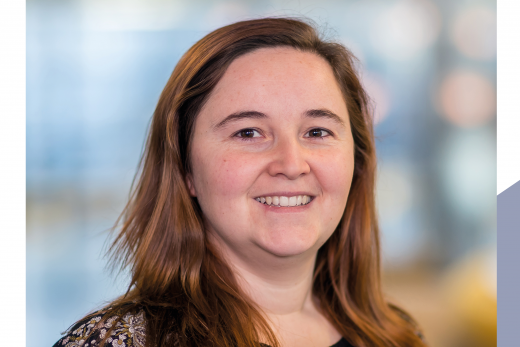05/08/2021
Dr. Annelies Bobelyn - The chair of the Translation Potential award
The SensUs Student Competition wouldn’t be complete without our very own jury. The jury looks at every biosensor, reads all the Team Result Documents, and assesses them on certain criteria. The jury of this year consists of 28 experts in the field of medical technologies.
The Teams have the possibility to win two jury-based awards: the Creativity award and the Translation Potential award. Today we introduce you to the chair of the Translation Potential award: dr. Annelies Bobelyn!
Why are you in contact with the SensUs Student Competition?
I have been involved in the SensUs Competition for a number of years now. I was approached by Menno Prins when he decided to expand the Competition and also offer entrepreneurship trainings as a part of the program. Since I teach various entrepreneurship courses here at the TU/e, I was happy to build on this experience to design the entrepreneurship training program for the SensUs Competition. Moreover, I am very interested to see how such a competition can help to valorize the research activities of students and to develop their entrepreneurial skills.
Why did you accept the invitation to be the chair of the jury for the Translational Potential award this year?
First of all, I think it is a great honor to be invited for this task. So, how could I say no? Second, this position will help me to understand how other jury members assess the different teams, which in turn may help to design an even better entrepreneurship program in the future.
What does the Translation Potential award mean?
For me, the Translation Potential award is really about impact. Which Team has designed a biosensor that has the best chances to be a commercial success? Which team understands best the market and how to design a biosensor that fits best with the needs of the market?
What do you think are the most important criteria for a Team to win the Translation Potential award?
The Translation Potential captures not only whether the newly developed biosensor is technically feasible, but also whether the design is desirable from a customer’s perspective and whether a financially viable business case can be developed for the biosensor. As such, validation and scalability are key. Validation refers to the fact that the Teams are able to justify their decisions with primary market data, while scalability refers to the industrialization perspective.
In your earlier years as a jury member, what is the most interesting or fun thing you remember?
What I enjoyed most the previous years was the direct interaction with the Teams during the final SensUs Event. Being able to talk to them and ask them questions really helps to understand the Teams. Moreover, for the Teams, it is the perfect occasion to demonstrate all their hard work and profound expertise. I remember a girl from the KU Leuven during the 2018 edition. She was so well prepared, I was really impressed with how she handled our questions. So, as a tip to all the teams, that’s how to stand out: impress us with your ability to tackle the most difficult questions by referring to all the work and research you did.

Facebook
YouTube
LinkedIn
Instagram